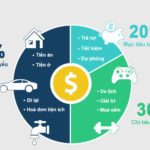Recently, Business Insider asked successful people what the smartest thing they’ve ever done with their money is, and here are some interesting responses they received.
I created an emergency fund
 Alexa von Tobel – Photo: Business Insider Alexa von Tobel – Photo: Business Insider
|
Alexa von Tobel, founder and CEO of LearnVest.com, author of Financially Fearless shared: “I always felt it was worth it to create my own emergency savings fund right after I landed my first job out of college. Without that money set aside, I wouldn’t have been able to weather the economic downturn and make it easier for people across America to have access to financial advice.”
I invested in real estate
 Farnoosh Torabi – Photo: Personal page of Farnoosh Torabi Farnoosh Torabi – Photo: Personal page of Farnoosh Torabi |
Farnoosh Torabi, personal finance expert, bestselling author, and host of So Money show, said: “The smartest thing I’ve ever done was to buy real estate in New York City in 2004 and hold onto that apartment until 2014. The home price has skyrocketed nearly 70% and I had someone express interest in buying it in less than 24 hours of being on the market.”
I bought an Apple Quadra 800 computer
 Adam Nash – Photo: Reuters Adam Nash – Photo: Reuters |
Chairman and CEO of Wealthfront, Adam Nash, said: “In the fall of 1993, I took the hard-earned money from a summer software engineering internship at Hewlett-Packard and bought an Apple Quadra 800 computer. While that computer represented a significant portion of my summer income, it was one of the smartest investments I made because it created opportunities that led me to my current career. In many ways, the computer represented the beginning of my financial independence, transitioning from being a burden on my parents. I bought the computer because I had just received my undergraduate degree in computer science. From there, I had the best job I ever had and decided to reinvest my personal income into devices that I believed would help me grow.”
I invested in ideas
 Jennie Enterprise – Photo: Personal page of Jennie Enterprise Jennie Enterprise – Photo: Personal page of Jennie Enterprise |
Jennie Enterprise, founder of CORE: club in Manhattan, New York City, shared: “The smartest thing I’ve ever done with my money is to invest in, nurture, and fuel talent and ideas with my heart and soul. My passion and work have always revolved around innovation, redefining lifestyles, and turning them into the center of communities. I’ve never purchased stocks, and I’ve never been interested in investing in something I can’t control. For me, it’s all about predicting the zeitgeist, investing in people and ideas bold enough to change the world.”
I made money work for me
 Steve Siebold – Photo: Personal page of Steve Siebold Steve Siebold – Photo: Personal page of Steve Siebold |
Self-made millionaire and author Steve Siebold said: “The rich taught me how to use money as leverage to make more of it. Most recently, I bought the Bona Allen Mansion near Atlanta. This acquisition and the subsequent renovations attracted the attention of the world to our business. We received emails of congratulations, buyout suggestions from larger companies, and ideas for expansion from countries as far away as China, Brazil, and Australia. The mansion is not only our headquarters, but also a world-class marketing tool that puts us on par with larger competitors. That’s what leveraging money is all about: You invest a dollar and get back ten dollars.”
I started a business
 David Bach – Photo: Personal page of David Bach David Bach – Photo: Personal page of David Bach |
Entrepreneur, bestselling author, and keynote speaker David Bach said: “The smartest thing I’ve ever done was taking $5,000 and starting FinishRich Media. I began my company from a coffee table in my kitchen with nothing but a dream and an idea to provide money advice for millions of women with the Smart Women Finish Rich program. I hired an attorney to create a legal structure for the company and built it day by day until it became a legitimate business. In a few years, I sold the Smart Women Finish Rich program to Random House, launched the nationwide Women Finish Rich seminars, and over the next decade, we’ve provided guidance to over 1 million women on steps to live and build wealth.” Currently, the FinishRich Brand has sold 7 million copies in 19 languages and is present in 50 countries.
You may also like





































